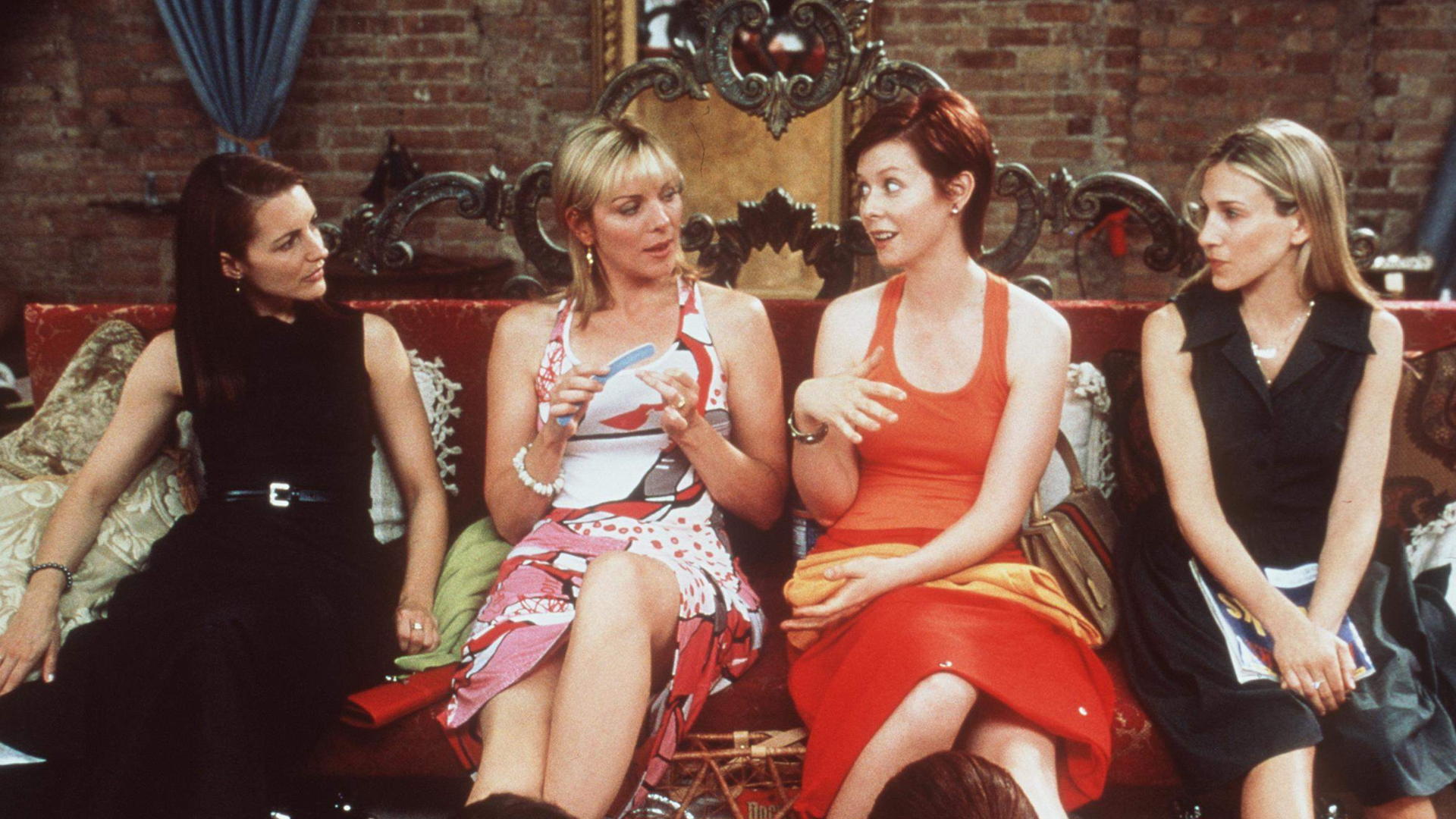‘Decentering men’ is back with a vengeance, but is it really up to women to be rejecting these patriarchal systems of power disproportionately protected and maintained by those gendered as male?
![]()
You might have first heard the term back in 2019, when Sherese (Charlie) Taylor coined it in her book entitled Decentering Men.
Or perhaps you came across it in the more recent rhetoric online. In digital spaces, the concept of ‘decentering men’ is often accompanied by the scene from Sex and the City.
You know, the one where Charlotte suggests to Miranda, Samantha and Carrie: “Maybe we could be each other’s soulmates and then we could let men be just these great, nice guys to have fun with.”
@binge Here’s to being each other’s soul mates. #satc #satctiktok #sexandthecity #sexandthecityclips #carriebradshaw #charlotteyork #samanthajones #mirandahobbes #tvclips #tvshow
Along with the revival of this popular 90s show, which some young people have called “outdated” and “cringey”, we’re also seeing things like Katy Perry’s music video for Woman’s World, which ‘represents a male sexual dreamworld’ that some critics have argued is ‘inconsistent with the feminist politics it links itself to,’ thanks to its appeal to the male gaze.
Likewise, the return of thin-is-in mentalities, low rise fashion, and heroin(e) chic aesthetics are once again taking over both our screens and our mental bandwidth. As Adam Vaughan points out, ‘much of 90s popular culture is inherently misogynistic’, or, I would add, at least compliant with a subordinate femininity through the physical and ideological minimisation of women.
Thus we must ask, is the resurgence of this discourse through the Y2K-ification of ‘decentering men’ simply another symptom of harmful 90s nostalgia which places the onus on women to act?
As Taylor suggests, more than five years after her book’s publication, ‘If decentering men is having a moment, it’s because women are paying attention’.
She points to the overturning of Roe v Wade, the mainstreamification of incel culture, and the interrogation of women’s autonomy, along with ‘the rise of fascism cloaked in tradwife aesthetics, where women’s value is reduced to submission and domesticity,’ as reasons for the revival of this political movement. ‘We are done pretending that this is normal, that’s why it’s resonating.’
And of course, she’s right. Contrary to the belief that “it’s easier to be a woman now” (a phrase which, when I first heard it, elicited my sympathy for men, but which now evokes little more than an eye roll) women are still most likely to carry out the majority of unpaid labour in the home.
Women are more likely to be victims of abuse, sexual assault and stalking. They’re more likely to attempt suicide (although the disproportionate burden of parental responsibility often plays a part in preventing their success), and to be diagnosed with depression. This includes trans women, who suffer disproportionate homelessness, low employment opportunities, and poverty.
View this post on Instagram





















